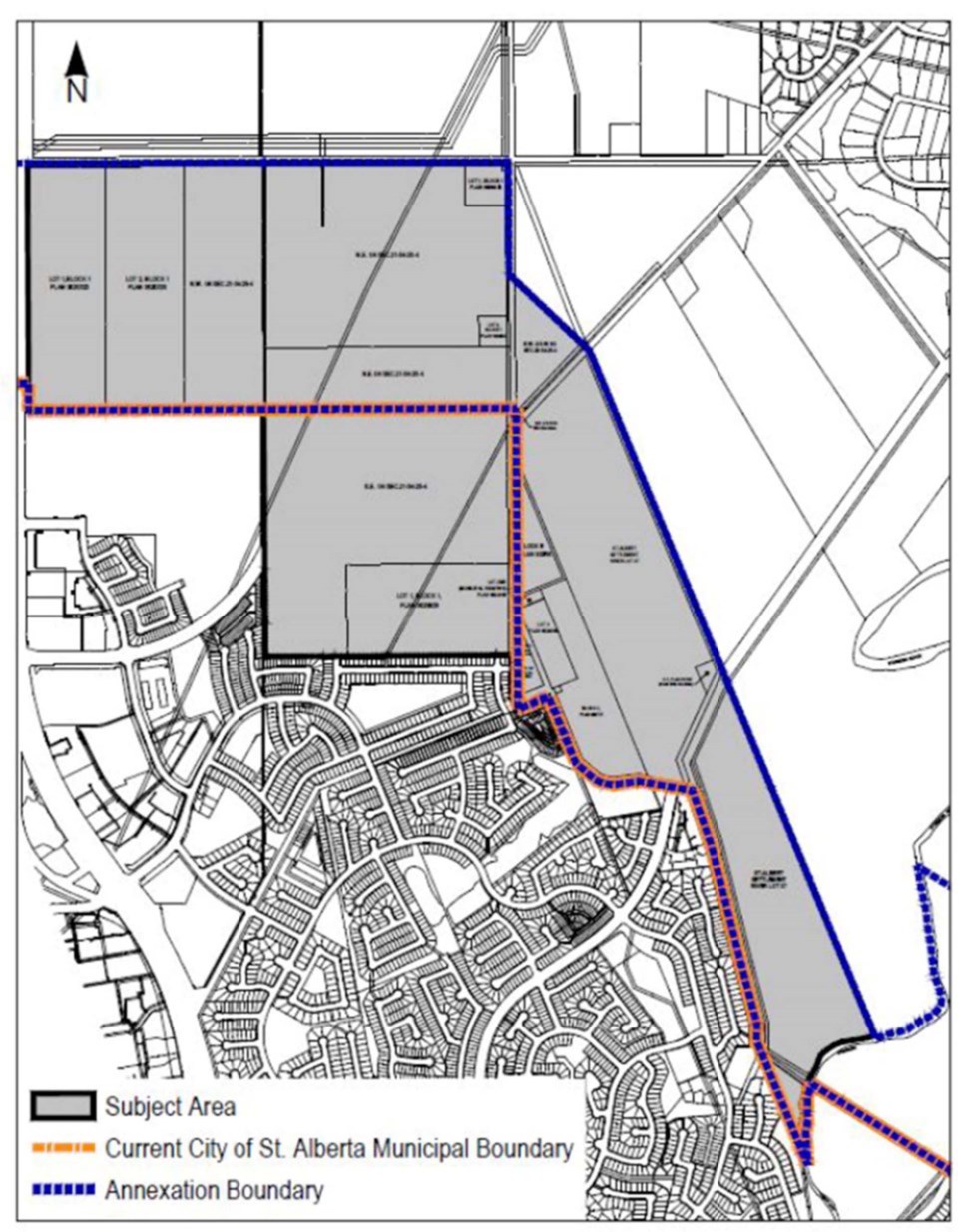St. Albert is considering a new process for approving proposed land uses that would no longer require minor changes to come before council.
Under the city’s current process, both major and minor land-use changes are approved at the Area Structure Plan (ASP) level. These changes are then brought to council for approval, and referred to the Edmonton Metropolitan Region Board (EMRB).
During a Feb. 14 council committee meeting, city planner Sajid Sifat presented a new process that would introduce another layer to the planning process in St. Albert: a neighbourhood plan. Sifat said the neighbourhood plan would reduce approval timelines, long-term costs for developers, and city staff time.
Ultimately, Sifat said the new process could cut down wait times for minor-change approvals from an average of six months to a year, to an expected three months.
Kristina Peter, manger of planning and development services for the city, said that the two-tiered process will allow ASPs to be “more comprehensive and better aligned” to the city’s Municipal Development Plan (MDP), and the EMRB’s Region Growth Plan, which describes how the region will develop over the next 30 years.
The Neighbourhood Plan must be consistent with the ASP, but will outline technical engineering and planning details, Peter said in an email. Examples she provided include stormwater design, land-use statistics, and details informing future subdivisions.
In addition to no longer having minor amendments come before council, Sifat said the new process would allow the city to proceed with amendments that don’t have a regional significance without contacting the EMRB.
Sifat described the new process with an example of recent amendments to the Riverside ASP during the committee meeting.
In the new system, the option to add a school site to a neighbourhood such as Riverside would still need to come before council (and be addressed at the ASP level), as this is a land-district change. Additionally, public notification and participation requirements will remain in place.
However, smaller changes such as a recent adjustment to the size of a Riverside stormwater pond would now leave council’s purview and strictly be up to the city’s director of planning and development.
When asked by Coun. Mike Killick whether neighbourhoods will still be sent notices of changes, Sifat said changes to the neighbourhood plan would be “kept largely to a staff level.”
In the email, Peter said public participation in the neighbourhood plan process will include “measures such as providing documents on the city’s website for interested parties to access and view.”
“If the proposed changes are not consistent with the council-approved ASP, the required application to amend the ASP would trigger the public participation process,” Peter said.
For ASP changes, the city’s public participation process includes public participation sessions led by the amendment applicant (at minimum an open house and public meeting), as well as legal obligations to notify nearby landowners, and hosting a public hearing at council.
Two-tier system
According to Sifat, the proposed process closely resembles those in neighbouring municipalities, such as Fort Saskatchewan, and Parkland County
The proposed two-tier process would allow ASPs to capture even larger areas of the city, enabling “broader network decisionmaking,” Sifat said. This would include the location of school sites, major road networks, major servicing networks, and higher-level land uses such as residential, commercial, industrial, and park sites.
Sifat said it will be possible for administration to work on the ASP and neighbourhood plan simultaneously.
Administration is currently piloting the new process for the city’s North East ASP and St. Albert West ASP.
“Lessons learned will be incorporated to help improve the process going forward,” Peter said in the email. “If these proposed ASPs are approved by council, these will be the first ASPs created under this new administrative process.”
During the committee meeting, Killick said he would like to see the city continue to pursue the new process.
“This brings us in line with our neighbouring communities,” Killick said.
Coun. Natalie Joly also spoke in favour of administration developing a bylaw to bring before council.
“Any opportunity to get council out of the weeds is something I’m interested in hearing,” Joly said. “Especially when it streamlines processes for our partners in development.”
A bylaw to implement the two-tier ASP process will be brought forward for council’s approval in the next two months.




